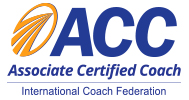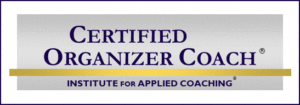 “Yikes! I’m not even close to getting my taxes done and so stressed out about it!”
“Yikes! I’m not even close to getting my taxes done and so stressed out about it!”
Not surprisingly, this time of year creates a lot of stress and anxiety for people . . . . especially for those that may have some procrastination, organization and motivation challenges.
Generally speaking, taxes are frustrating, confusing, and sometimes moderately depressing. Therefore, we tend to procrastinate when it comes to filing our taxes. According to Wolf Tax, there are five general reasons we procrastinate when it comes to filing our taxes:
- Excuses: We can come up with lots of circumstances as to why we don’t do things, especially if the excuses are self-serving and other people around you are doing it too. “Groupthink” anyone?
- Thrill-Seeking: Sometimes waiting until the last possible moment to do something gives us an emotional high. Generally, this is a short-lived payoff.
- No obvious penalty: There’s no penalty for dropping them off at the post office at 11:59 PM on April 15. Why hurry?
- Work better under pressure: Actually, people are less effective and more prone to make errors when working under pressure.
- Perfectionism: Often referred to as “perfection paralysis.” We don’t want to start a project because we fear the outcome may not be “perfect.” Perfect stands in the way of progress.
Hopefully, you’ve already filed your taxes, received your refund, and none of what I’m presenting applies to you. If so, nicely done!
If you are still waiting to file your taxes, here are your next few steps:
- Call For A Tax Appointment: Stop reading right now and call for an appointment with your tax preparer. If you don’t have one, now is a good time to do some research. There are, of course, a plethora of tax preparation options. You can do an internet search on “tax preparation services,” but now may be a great time to use that social network you’ve been building. Ask your friends and relatives if they have anyone to recommend. In addition, there may be some free tax preparation services available depending on your age and income. Search “free tax preparation services” and you will get a lot of
- Gather Your Documents: By now you should have received all the documents required to prepare your taxes. These documents may include, but are not limited to:
- W-2s from your employers,
- 1099-MISC forms for self-employment income,
- 1099-INT (interest) and 1099-DIV (dividends) forms,
- 1099-B forms showing brokerage trades in stocks and bonds,
- K-1 forms for income from a partnership, small business, or trust,
- 1099-SSA form showing Social Security received,
- Documentation of charitable donations.
Other great sources for documents you may need to prepare your taxes:
Tax Preparation Documents for Homeowners
Documents To Take To Your Accountant
- Create A Reusable File System To Track And Maintain Tax Documents: Once you’ve gathered all your documents, create a simple filing system (it may only be two file folders or envelopes) that will allow you to repeat this process year-after-year (generally tax documentation requirements will be the same from year-to-year unless there are major life changes).
Envelope #1 Current Year Taxes: This envelope will contain a checklist of all the documents that were required to file the current years’ taxes, plus all backup documentation.
Envelope #2 Next Year Taxes: This envelope will contain the checklist of documents you need to gather for the next year’s tax cycle. Using this previously-created and tax preparer-approved form will make it easier to ensure you have all the documentation you need for simple tax preparation come year end.
I suggest using sturdy, plastic folders or envelopes for this purpose, that way you’re not replacing them every year. Plastic File Folders or Plastic Envelopes
Filing taxes isn’t always fun and rewarding, but the consequences of not filing (or not filing on time) can be expensive and stressful. Don’t procrastinate.
Cindy Jobs, COC, ACC
Looking for more information?
Click here for 15-minute organizing tips.
National Association of Productivity & Organizing Professionals, Seattle Chapter Vice-President
Professional Resource Member
Institute for Challenging Disorganization
Level I Certificates earned in Chronic Disorganization; ADD; Client Administration; Time Management; Mental Health; and Hoarding.
Level II Specialist Certificates earned in Chronic Disorganization and ADHD.






